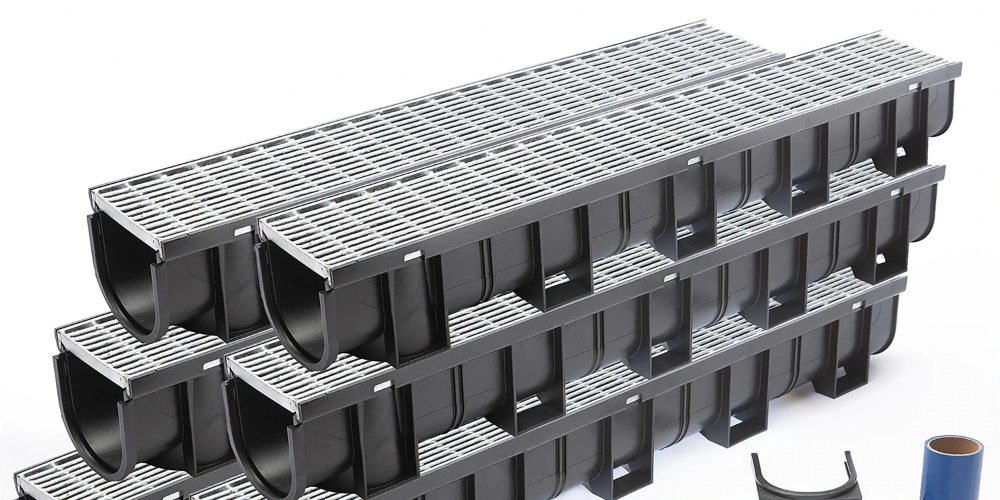Corrosion is a persistent problem when it comes to drainage systems, especially in harsh environments. It can compromise the structural integrity of drains, leading to frequent repairs and replacements. However, with the advent of plastic trench drains, a superior solution has emerged. In this article, we will explore the benefits and features of plastic trench drains, with a specific focus on their corrosion resistance.
Drainage systems play a crucial role in managing surface water and preventing flooding in various applications such as commercial buildings, parking lots, and industrial facilities. Traditional trench drains, typically made of materials like concrete or metal, have long been the go-to option.
However, these materials are susceptible to corrosion, which can be detrimental to their durability and overall performance. Plastic trench drains are a type of drain that offers superior corrosion resistance compared to traditional materials like concrete or metal.
Importance of Corrosion Resistance
Corrosion resistance is a crucial factor to consider when choosing trench drains, especially in environments where the drains are exposed to chemicals, saltwater, or other corrosive substances. Corrosion can lead to the formation of rust, degradation of material strength, and ultimately, failure of the drain system. It can also result in the contamination of water and negatively impact the surrounding environment.
Plastic trench drains offer a modern and innovative solution to combat corrosion-related issues. They are manufactured using durable and corrosion-resistant plastics such as high-density polyethylene (HDPE) or polyvinyl chloride (PVC). These materials are known for their exceptional resistance to corrosion, making them an ideal choice for demanding applications.
Factors Affecting Corrosion Resistance
Several factors contribute to the corrosion resistance of plastic trench drains. Firstly, the quality and composition of the plastic used play a crucial role. High-quality plastics with appropriate additives and reinforcement provide enhanced corrosion resistance. Additionally, the design and installation of the trench drain system, including proper slope and effective connection methods, also contribute to its overall corrosion resistance.
Different types of plastics are used in the manufacturing of trench drains. High-density polyethylene (HDPE) is a common choice due to its excellent chemical resistance and durability. Polyvinyl chloride (PVC) is another popular option, offering a balance between affordability and performance. Other materials, such as fiberglass-reinforced plastic (FRP), are also utilized for specific applications requiring additional strength.
Design Considerations for Corrosion Resistance
When designing a plastic trench drain system, certain considerations can maximize its corrosion resistance. Proper slope and alignment ensure efficient water flow, preventing the accumulation of corrosive substances. The use of chemical-resistant grates and covers, along with effective sealing techniques, further enhances the system’s resistance to corrosion.
The installation of plastic trench drains follows a straightforward process. They are lightweight, making them easier to transport and install. Regular maintenance is relatively simple, involving routine cleaning to prevent the buildup of debris and ensure optimal performance. Periodic inspections and repairs, if necessary, are essential to maintain the longevity of the trench drain system.
Applications of Plastic Trench Drains
Plastic trench drains find application in various industries and settings. They are commonly used in commercial buildings, airports, parking lots, food processing plants, and sports facilities, among others. Their versatility, combined with their corrosion resistance and durability, makes them suitable for both indoor and outdoor environments.
When comparing plastic trench drains with alternative materials, their corrosion resistance stands out as a significant advantage. While concrete and metal drains may require frequent maintenance and replacements due to corrosion, plastic trench drains offer a durable and cost-effective solution. Additionally, the lightweight nature of plastic trench drains simplifies installation and reduces labor costs.
Conclusion
Plastic trench drains provide an innovative solution for superior corrosion resistance in drainage systems. Their exceptional durability, chemical resistance, and overall performance make them a reliable choice for various applications. By opting for plastic trench drains, businesses and organizations can save on maintenance costs, enhance the longevity of their drainage systems, and ensure effective water management.
